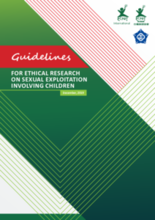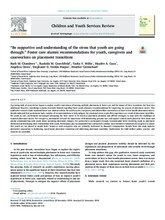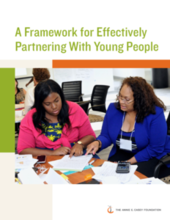Displaying 121 - 130 of 375
This study used focus groups with 49 Looked-After-Children (LAC) in the UK to explore how to improve communication practices and ways of gaining feedback to facilitate quality improvement across healthcare.
Doing research involving children in the context of sexual exploitation raises a range of ethical questions and dilemmas. This document provides guidance for negotiating these ethical questions for a range of people engaged in field research (from lead researchers to data collectors).
This qualitative research study examined foster care alumni’s advice for youth in care, caregivers, and child welfare caseworkers on how to best handle placements moves.
This paper presents four case studies of participatory educational research in Africa, including the lived experiences of orphaned children and conceptions of education quality in South Africa.
This guide from the Annie E. Casey Foundation in the United States explores authentic youth engagement, including how it benefits young people, why it works and what it looks like in real life.
This webinar - presented by the Kenya Society of Care Leavers (KESCA), the Uganda Care Leavers (UCL), The Better Care Network and Changing the Way We Care - offered policy makers, practitioners, advocates and careleavers a unique opportunity to listen and learn from two leaders of careleaver associations who highlighted two recent documents that illustrate the careleaver experience within and outside of care.
Building on 10 qualitative interviews with parents of children in Norwegian Child Welfare Services, this paper discusses parents' views on collaboration between children and child welfare professionals.
Building on 10 qualitative interviews with parents of children in Norwegian Child Welfare Services, this paper discusses parents' views on collaboration between children and child welfare professionals.
This article explores how children living in foster care create senses of belonging across diverse family relationships. It draws on video diaries made by 11 Danish children living in foster care.
The Bounce Project is a pilot youth-leadership mental health training programme co-designed with young people who have experienced out-of-home-care (OoHC). In this study, the authors evaluated the Bounce Project from the young people’s perspectives to explore the acceptability, successes and limitations of the training to promote the participant’s mental health and their contribution to system level change.




